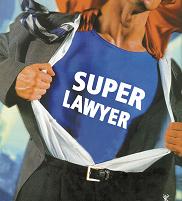By ANDREW MAYKUTH Inquirer Staff Writer David Berger, who called himself a “people’s lawyer,” was best known as one of the pioneers of class-action lawsuits. After leaving the Philadelphia City Solicitor’s Office for private practice, he recovered billions of dollars from the government, big oil companies, and Wall Street bankers for legions of small clients.
Mr. Berger, 94, who of died of pneumonia Thursday in Palm Beach, Fla., won major cases in the Three Mile Island nuclear power accident, the Exxon Valdez oil spill, and the Drexel Burnham Lambert junk-bond scandal. His firm won a $2 billion settlement from the government on behalf of the bankrupt Penn Central railroad and thousands of shareholders.
“He was a bright, bright lawyer,” said Richard A. Sprague, the prominent Philadelphia criminal attorney who practiced with Mr. Berger in the 1970s. “The world didn’t realize the potential of class-action litigation until Dave Berger came along.”
But Mr. Berger was more than an innovator of complex litigation that allowed lawyers to collect many small clients together to fight some of the world’s most powerful defendants.
The son of immigrant Jewish peddlers from Austria, Mr. Berger was born in Archbald, a small town near Scranton. He graduated in 1936 from the University of Pennsylvania Law School, first in his class, Order of the Coif, and as a member of the law review.
His legal work made him rich.
Mr. Berger arrived in Philadelphia in 1929, a few months before the stock market crash drove the family store into financial ruin. Mr. Berger’s son Daniel, a partner at the Philadelphia law firm, said his father earned his way through Penn with a job at the Jewish Student Center that paid him a dollar a day, plus an apple.
He is a survivor of the sinking of the Hornet in 1942, and later was chosen by Adm. William F. Halsey to serve on his personal staff when the admiral became commander of the South Pacific. Mr. Berger was ultimately promoted to commander, and was awarded a Silver Star.
In New Guinea during the war, he met Marine Capt. Richardson Dilworth of Philadelphia and they struck up a friendship.
“They promised that if they survived the war, they would go back and reform Philadelphia’s government,” said Daniel Berger.
Dilworth appointed Mr. Berger city solicitor in 1956. During his term, President John F. Kennedy appointed him to a committee to develop high-speed rail lines in the Northeast Corridor, an idea that later became Amtrak.
Mr. Berger returned to private law practice in 1963.
Soon he and Harold Kohn, another renowned Philadelphia trial lawyer, began developing class-action suits under federal antitrust laws. The laws allowed attorneys to sue on behalf of many clients. The only requirement was that a judge had to certify that the clients all had similar claims – that they were members of the same class. The suits became instrumental in spurring changes in many areas, including consumer products, environmental practices, and medical practices.
Curated News, Culture And Commentary. Plus, the Usual Sex, Drugs and Rock n' Roll

